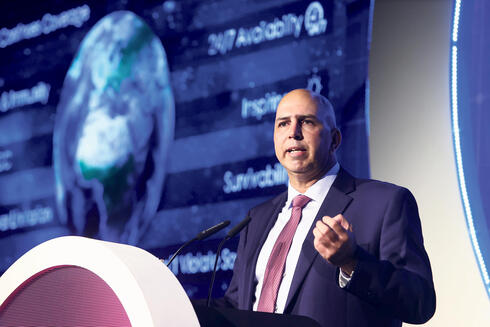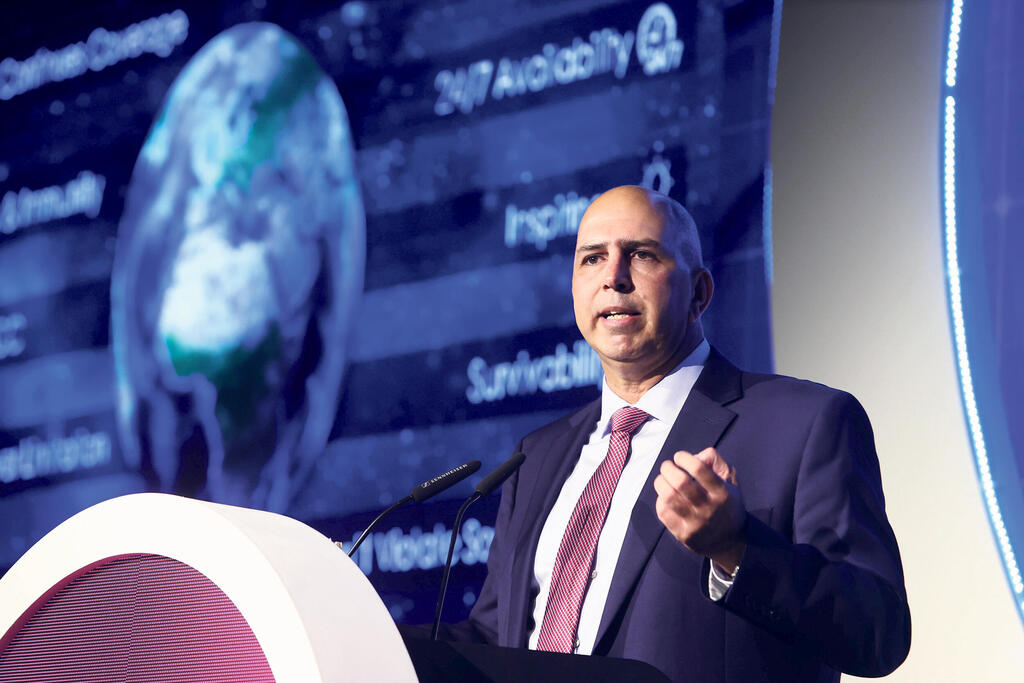
"Israel is at the cutting edge of technology in space"
Speaking at the Ramon GeoInt 360 conference, IAI’s space program director Shlomi Sudari presented existing and future capabilities. "We want to make the vision of knowing everything, exactly where everyone is at any time, a reality"
"We want to make the vision of knowing everything, exactly where everyone is at any time, a reality," said Shlomi Sudari, director of the space program of Israel Aerospace Industries (IAI), speaking at the Ramon GeoInt 360 conference. "I think we need to produce satellite systems on demand."
Sudari continued: "We all remember that when we were kids, if we wanted to see a movie we had to record it or plan to be at home while it was being broadcast. Now it's different, and we want it to be like that in intelligence gathering as well. The system has to constantly have a target, every ten minutes and for 24 hours, seven days a week. Today most satellites last at best for 12 hours, seven days a week. So we need it to be very cost-effective. Say I'm a farmer. I want to see how many oranges I have in my orchard, what color they are and what size they are, and if the ground next to the trees is wet... eventually we have to see the orange."
According to Sudari, "In the aerospace industry there are many systems and sensors that can photograph and identify the necessary object. Why in space? Among other things because of the advantages of global coverage, there is no restriction of flight areas, there is no soldier risk, there is no need to plan the mission, and there is 24/7 availability."
IAI is the main contractor of Israel's space program. "We have unique knowledge, infrastructure, and proven experience," said Sudari. "We don't present charts, but functional systems that work. We have already produced satellites that are in use by customers." In the next generation of satellites, he said, they hope to achieve the highest resolution in the world and even video capabilities.
"These satellites give us real images," Sudari explained, "in which you can see real details," adding that the aerospace industry is engaged in closing the gap between military and civilian use. In 2017, for example, BGUST was launched, which collects images for Ben Gurion University. In a year, a satellite will be launched with the aim of understanding processes in space, and there are plans for the production of a commercial satellite. "It keeps us on the cutting edge of space technology."
The goal, according to Sudari, is to create a "satellite as a service" - customers will be able to access the cloud and collect the information. "We want the client to plan their mission - not what the sensor should see. I want improved artificial intelligence in our tools - so that the army does not have to dig through the information, but the system knows how to retrieve it."
Sudari concluded by saying that they are now developing a satellite that will enable quality intelligence 24/7. The goal, he emphasized, is to sell not the satellite but its service.














